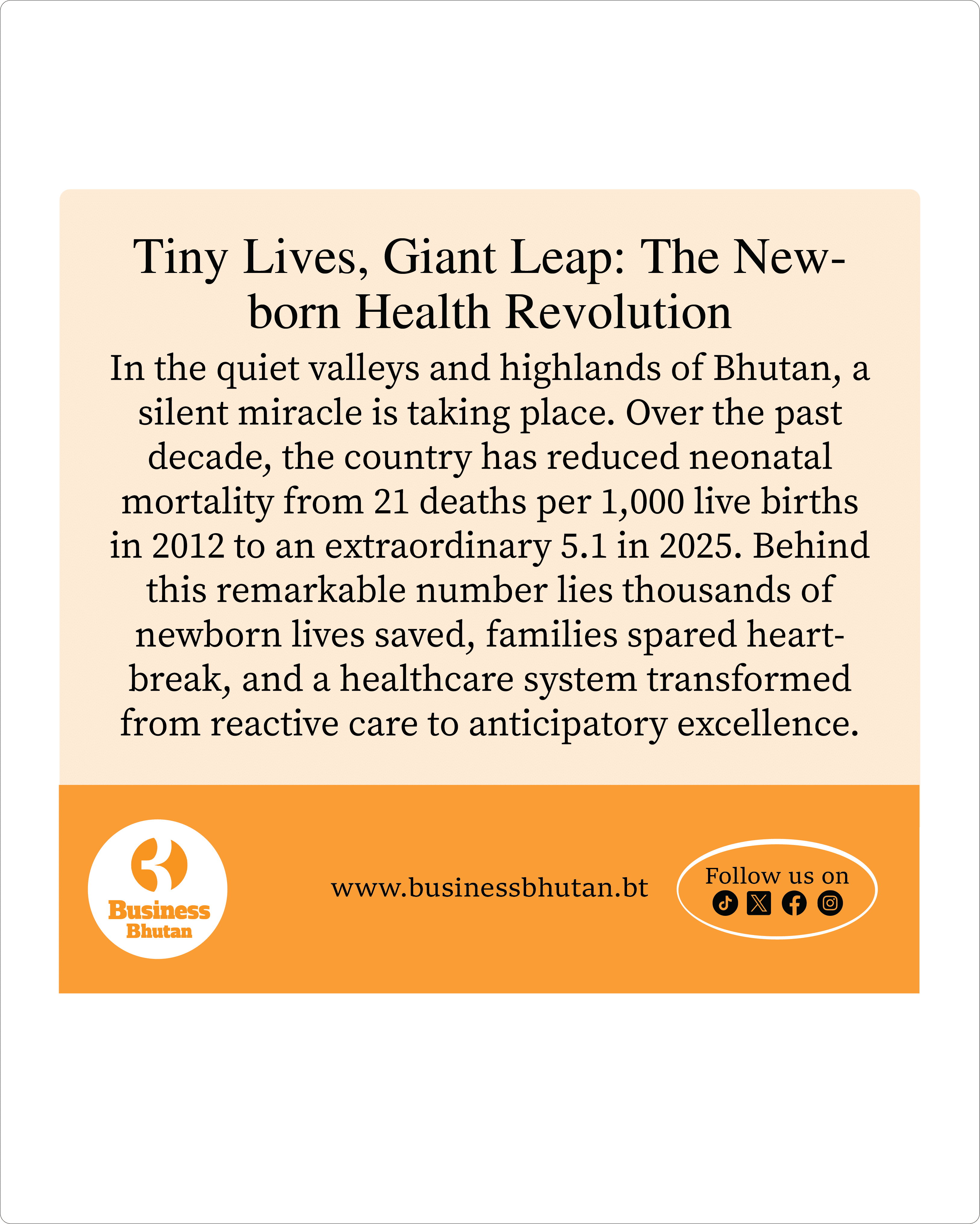Bhutan among the 24 countries out of 51 with trend data that is on track to reach universal coverage for basic sanitation by 2030, states UNICEF – WHO Report
To strengthen and improve menstrual health and hygiene management, the Education Minister, Yeezang De Thapa on May 28 announced to make all schools across Bhutan period -friendly in the next five years.
The Education Minister announced the Government’s commitment during the observation of Menstrual Hygiene Day at Norbugang Central School in Samtse. The observation also marked the 10th anniversary of Bhutan joining the global community to mark Menstrual Hygiene Day.
Marking the Day’s anniversary, Red Dot Bhutan, the national advocacy platform for menstrual hygiene management launched the National Standards for Water, Sanitation and Hygiene (WASH) for schools and monastic institutions. The standards recommend that every student, teacher, and practitioner, regardless of their location or institution, has access to clean water, proper sanitation, and sound hygiene practices. This means, all WASH facilities and services also have to be period-friendly.
In 2013, a WASH assessment found that sanitary pad disposal facilities for girls in schools were nonexistent in most schools and the lack of such facilities compelled menstruating girls to take leave. In 2023, records with the education ministry show that 63 per cent of schools have disposal mechanisms for menstrual hygiene waste, 41 per cent of schools have covered disposal bins for menstrual hygiene waste and 46 per cent of schools have changing room for menstrual hygiene management.
“These achievements also tell us that we have much to do. The launch of the National Standards for WASH in schools and monastic institutions sets us towards bigger aspirations in menstrual health management,” the Education Minister said. “I am confident that with the support of our development partners and CSOs, making Bhutan a period friendly country is an achievable target for Red Dot Bhutan.”
Period friendly toilet facilities have regular water supply, are equipped with proper disposal bins, are inclusive and provide privacy and basic menstrual products for girls and women to manage menstruation with safety and dignity.
In a video message, Prime Minister Dasho Tshering Tobgay highlighted the importance of the day and said, “For this, education, advocacy and open conversations are crucial among us, especially men and boys.”
Acknowledging the instrumental role of teachers in promoting menstrual hygiene in schools and monastic institutions, all 699 school health coordinators across the country were also awarded certificates of recognition.
A new global report Progress on drinking water, sanitation, and hygiene in schools 2000-2023: special focus on menstrual health – released by UNICEF and WHO states that of the 51 countries with trend data, Bhutan is among the 24 countries that is on track to reach universal coverage for basic sanitation by 2030. For SDG monitoring, basic sanitation service means schools have improved sanitation facilities that are single-sex and usable.
“Bhutan’s progress in menstrual hygiene is commendable. For children and young people, this progress means a big step towards a life where menstruation is no more considered shameful or a taboo,” UNICEF Representative Andrea James said. “However, stigma still remains a challenge in some communities across Bhutan and we are hopeful that Red Dot Bhutan’s sustained advocacy towards making Bhutan a period friendly country in the next five years will address the barriers to destigmatize menstruation.”
Lyonpo Yeezang De Thapa stressed that being a period friendly community and a society is beyond providing access to facilities and services. “We must address the stubborn challenges of stigma and discrimination associated with menstruation.”
Manager of Religion and Health Programme with the Central Monastic Body, Kinley Penjor said the launch of the standards would improve the quality of WASH facilities in monastic institutions and make WASH services period friendly. “As we advocate the national standards, members of the monastic body will also create awareness to destigmatize menstruation in the communities,” he said.
For a period friendly Bhutan, the roles and support of fathers, teachers, brothers and male colleagues are crucial, according to the SNV Country Director, Kencho Wangdi. “Also important, if not more, are addressing menstrual health and hygiene needs and challenges of women and girls with disabilities.”
Under the Royal Patronage of HRH Princess Euphelma Choden Wangchuck, Red Dot Bhutan is led by the Ministry of Education and Skills Development in partnership with the Ministry of Health, the DratshangLhentshog, Bhutan Nun’s Foundation, RENEW, SNV, BTO and UNICEF.
By Sonam Lhamo, Thimphu
















